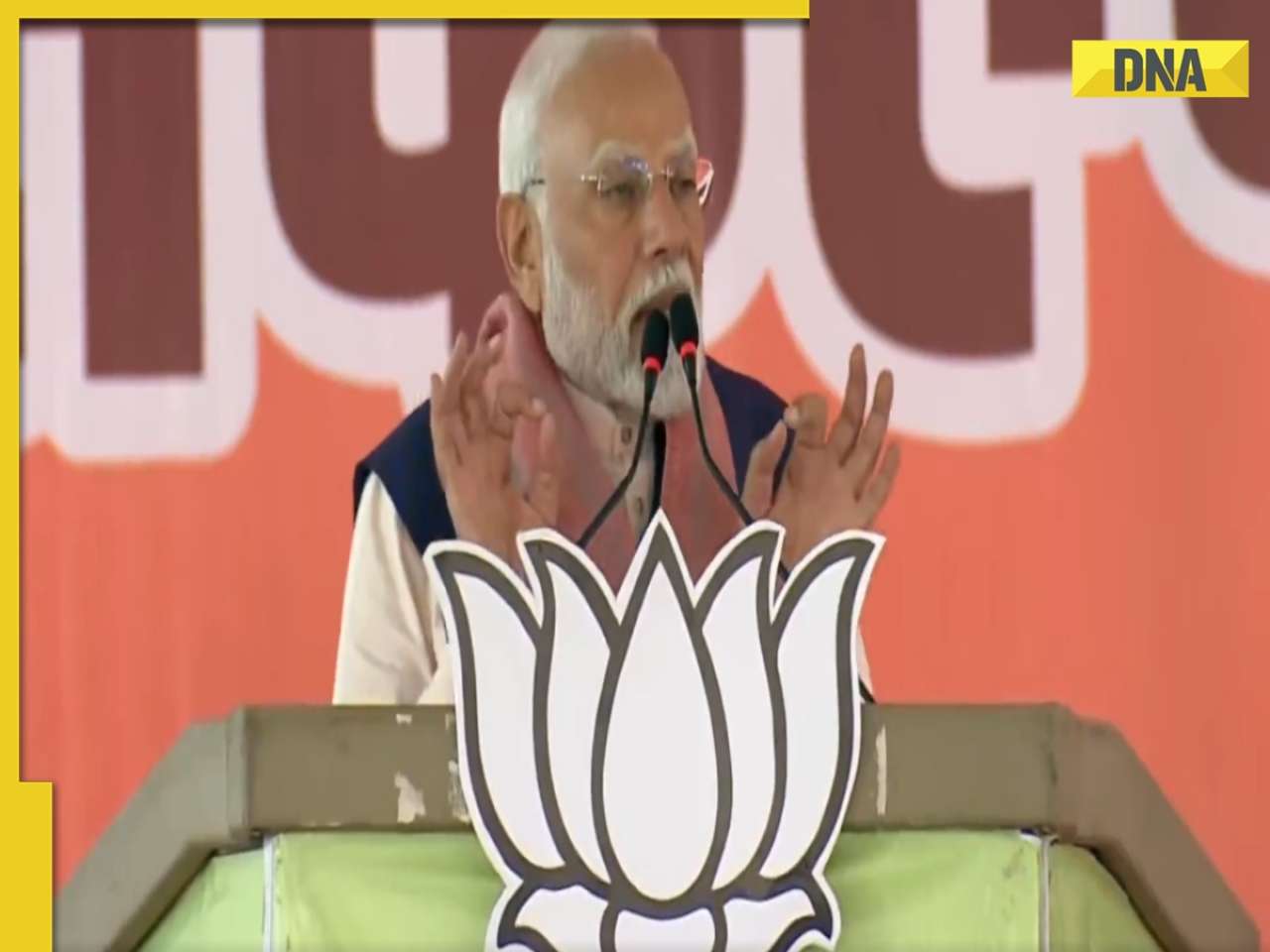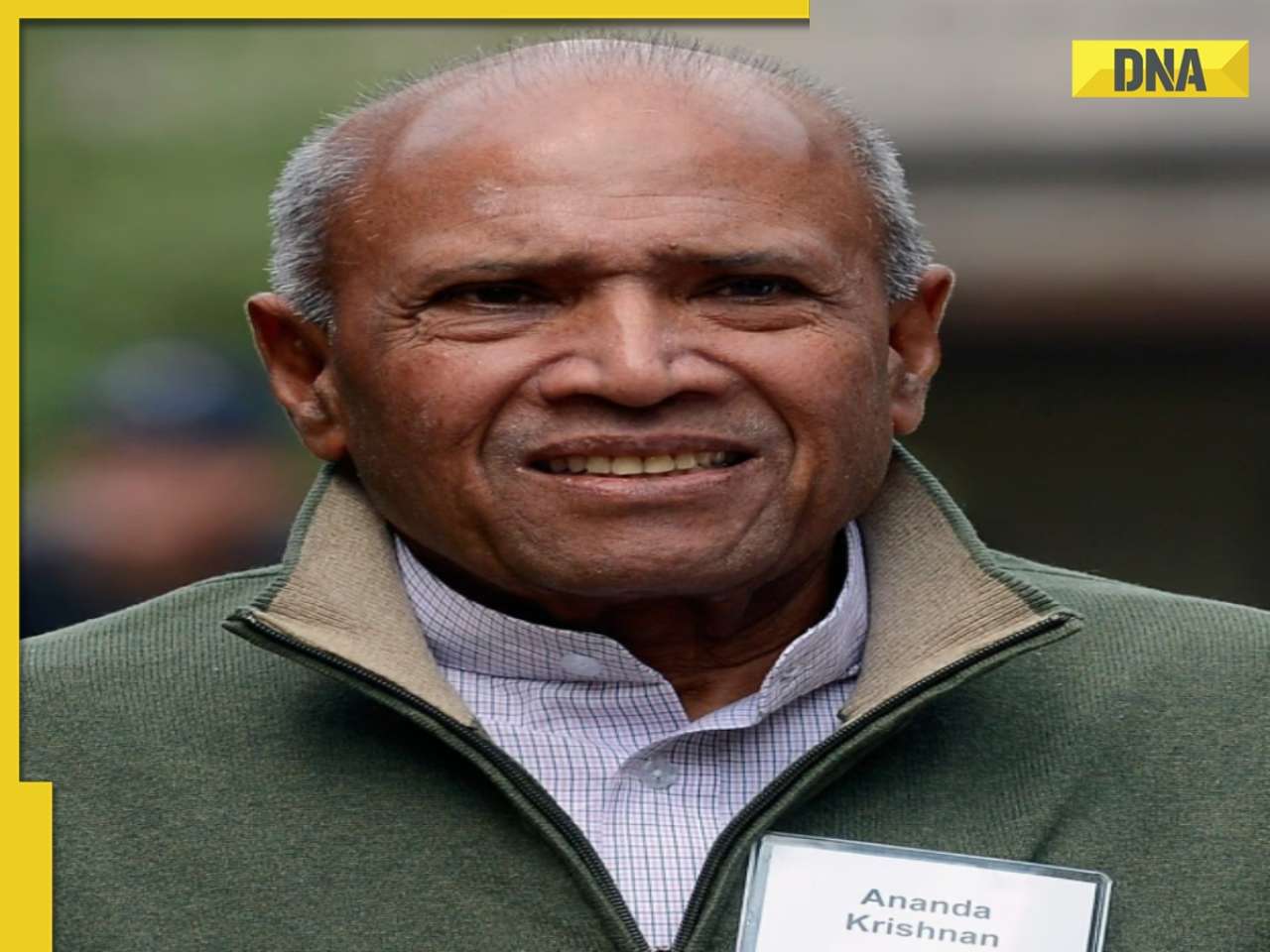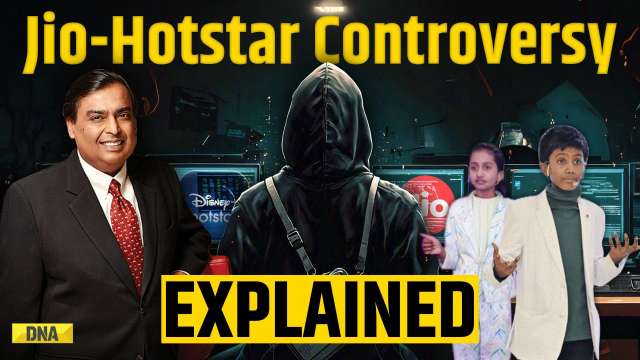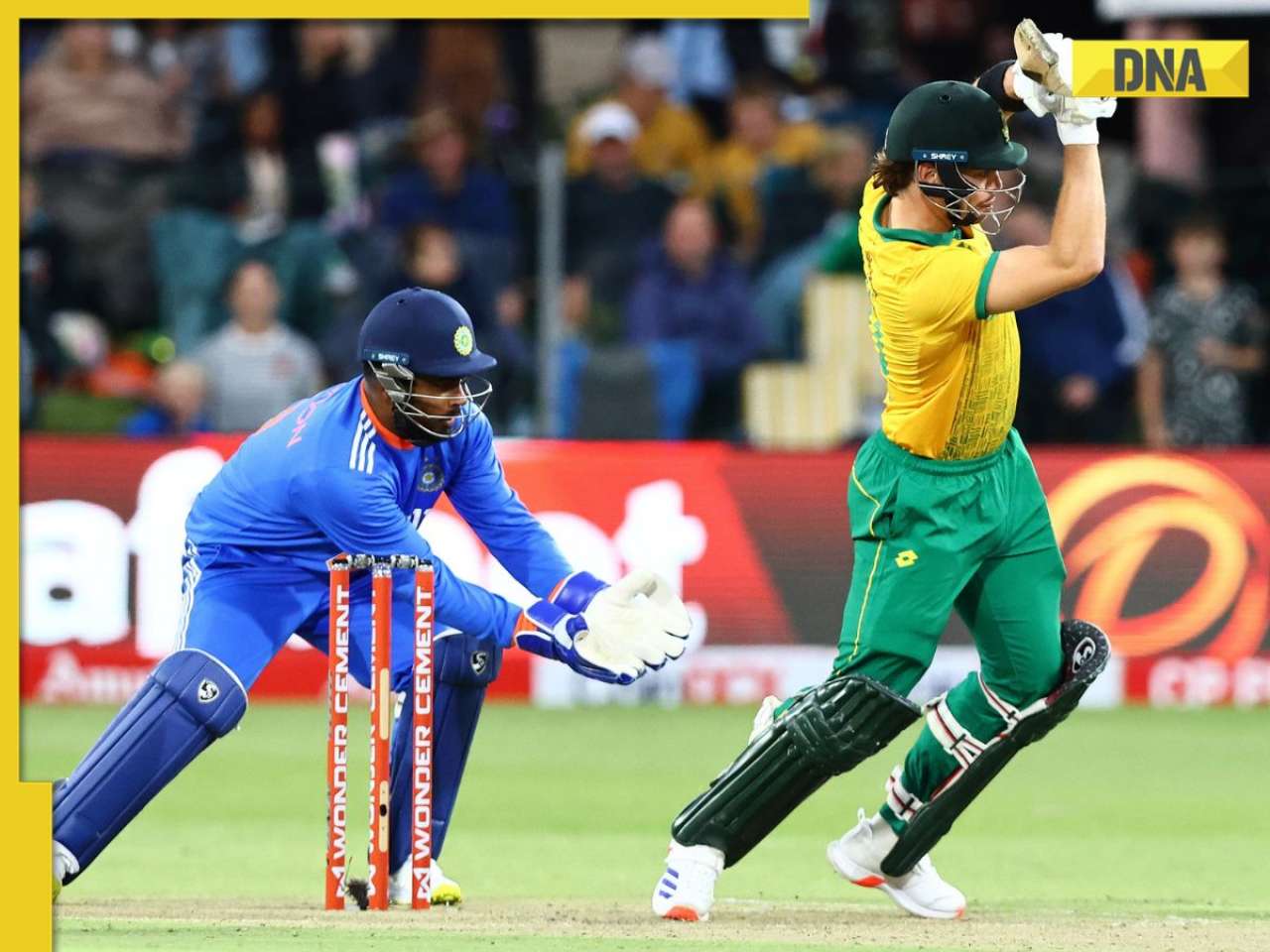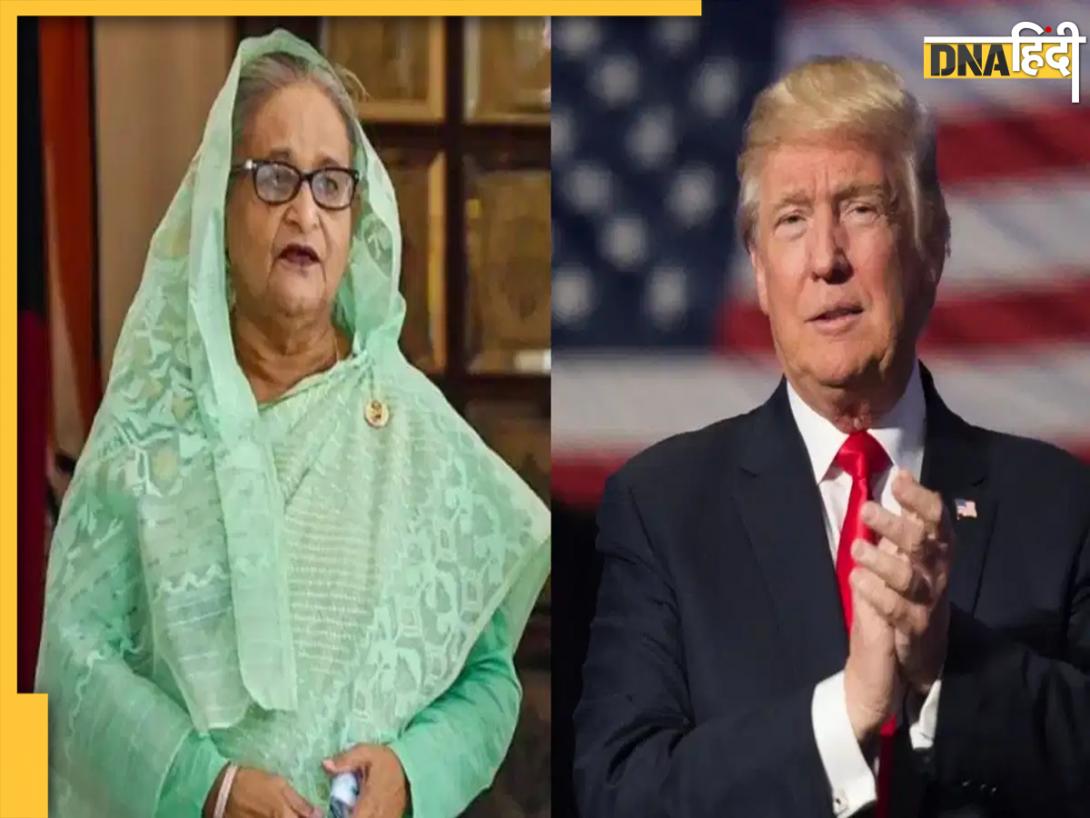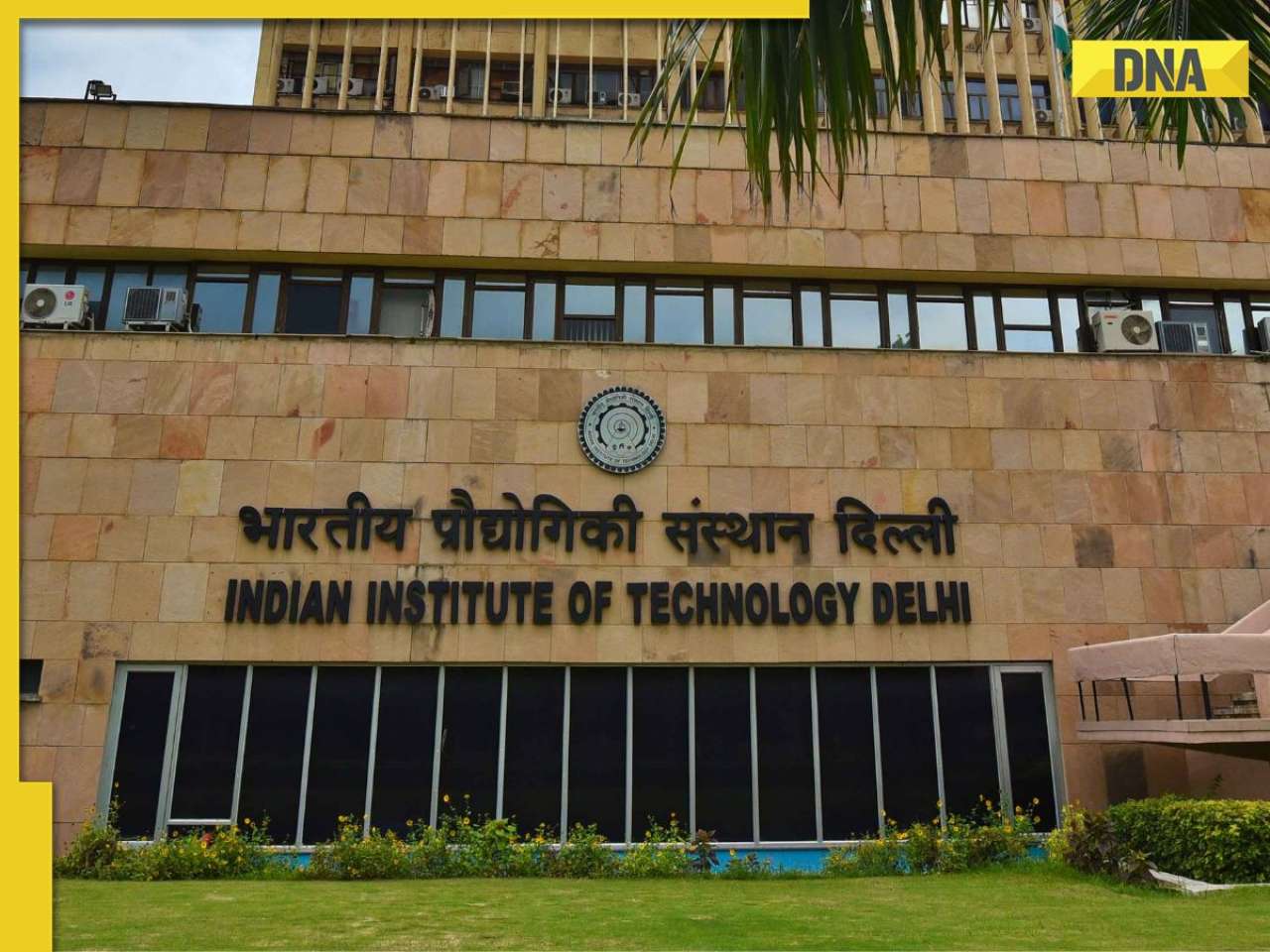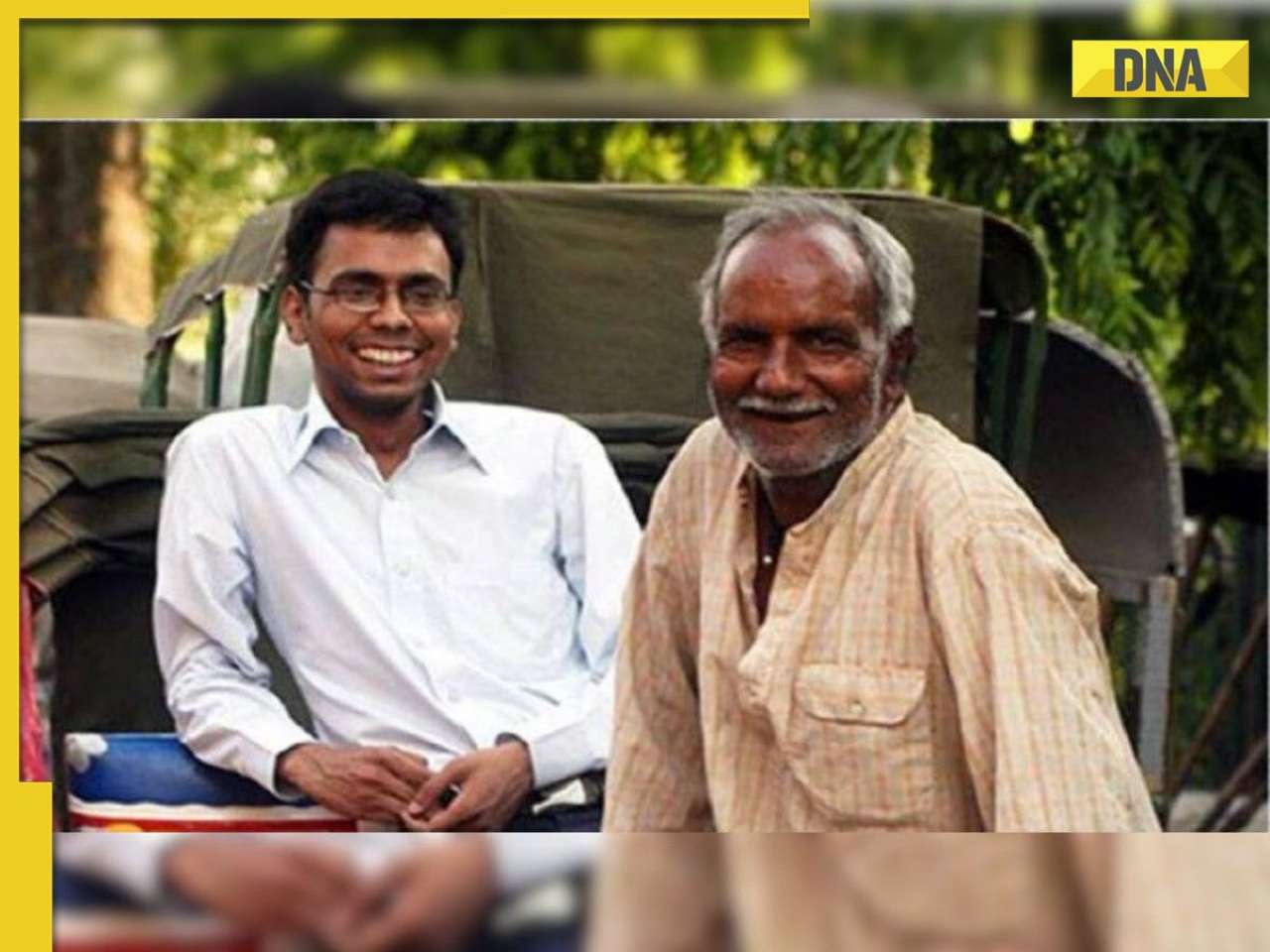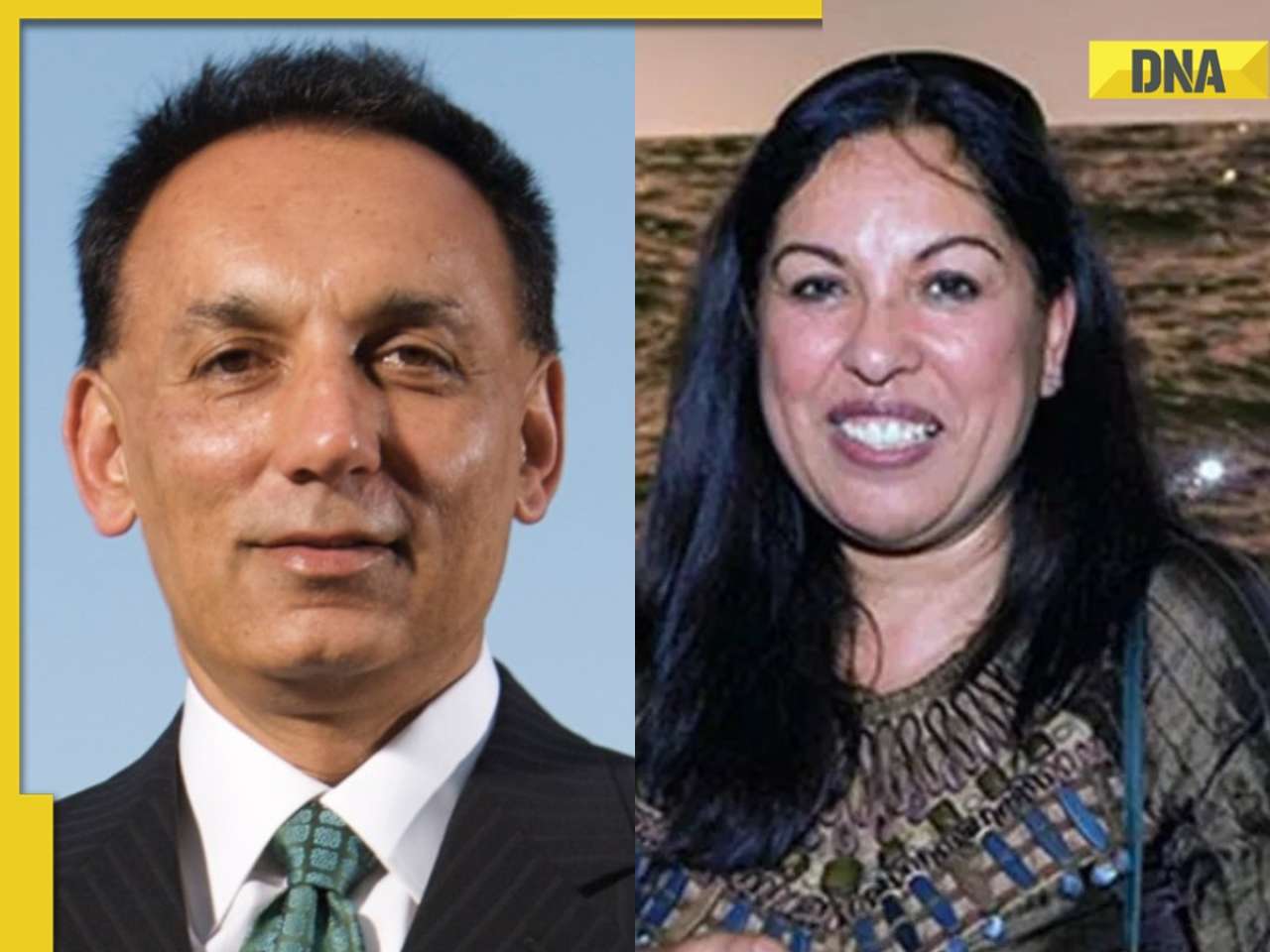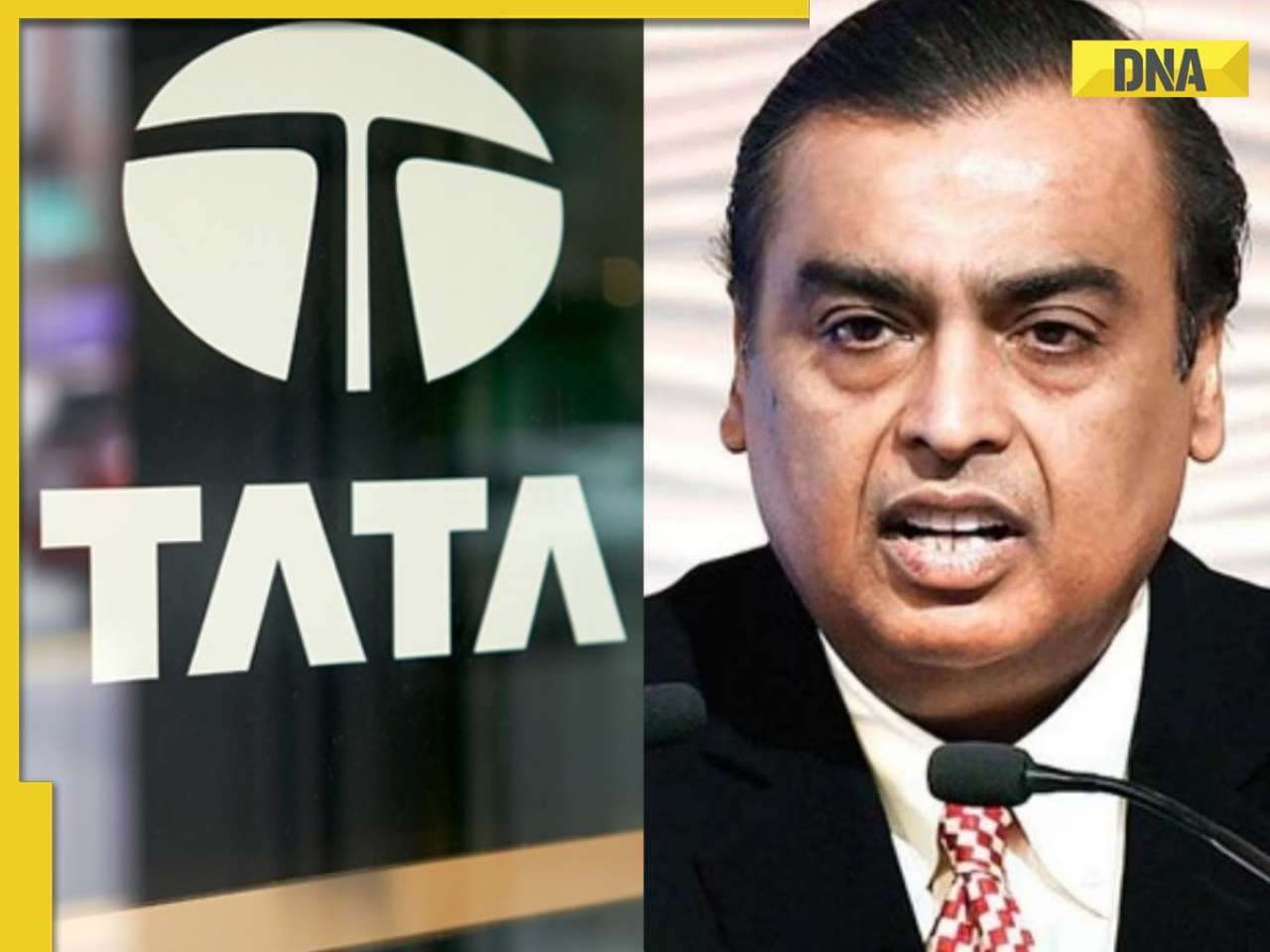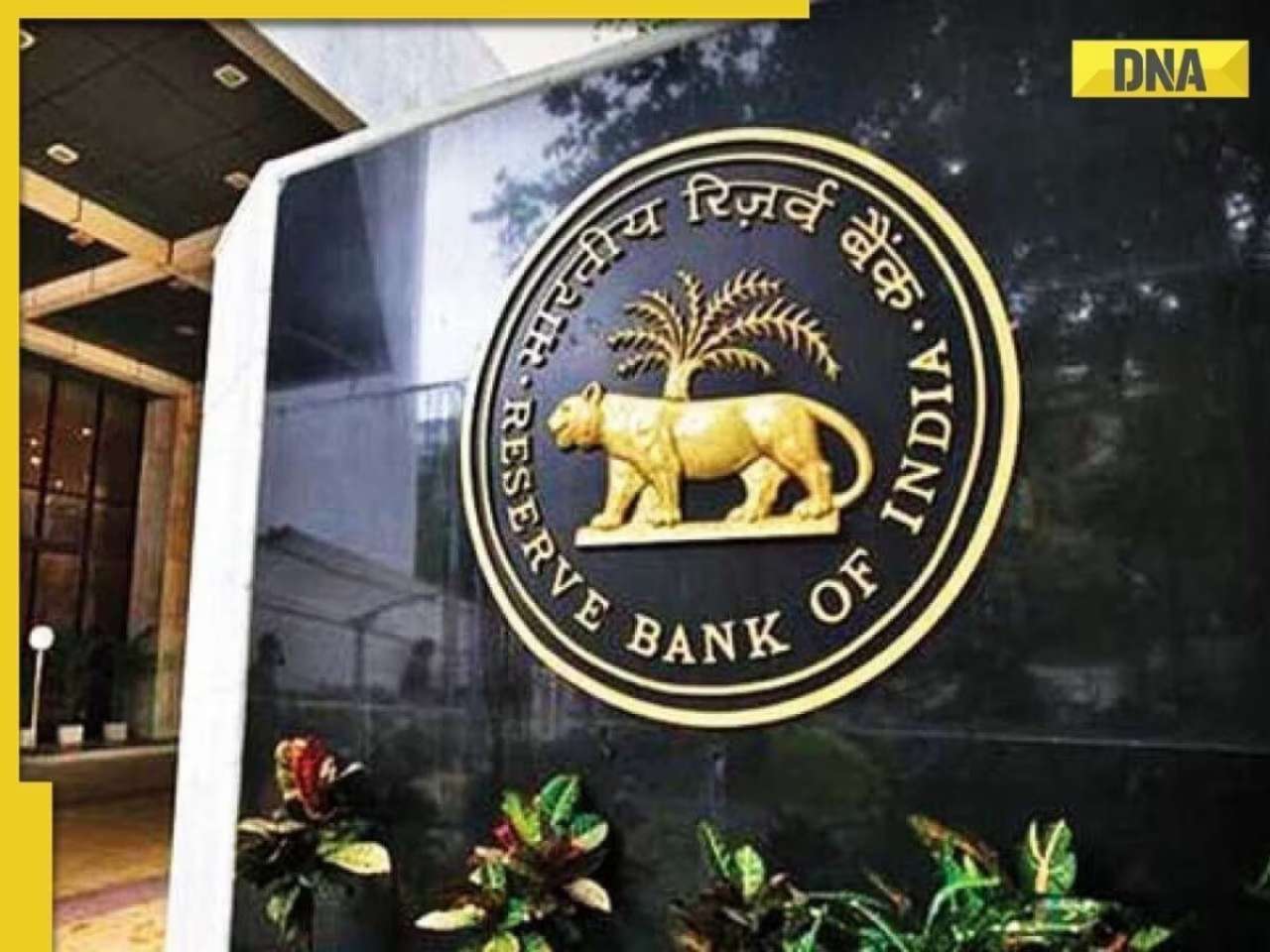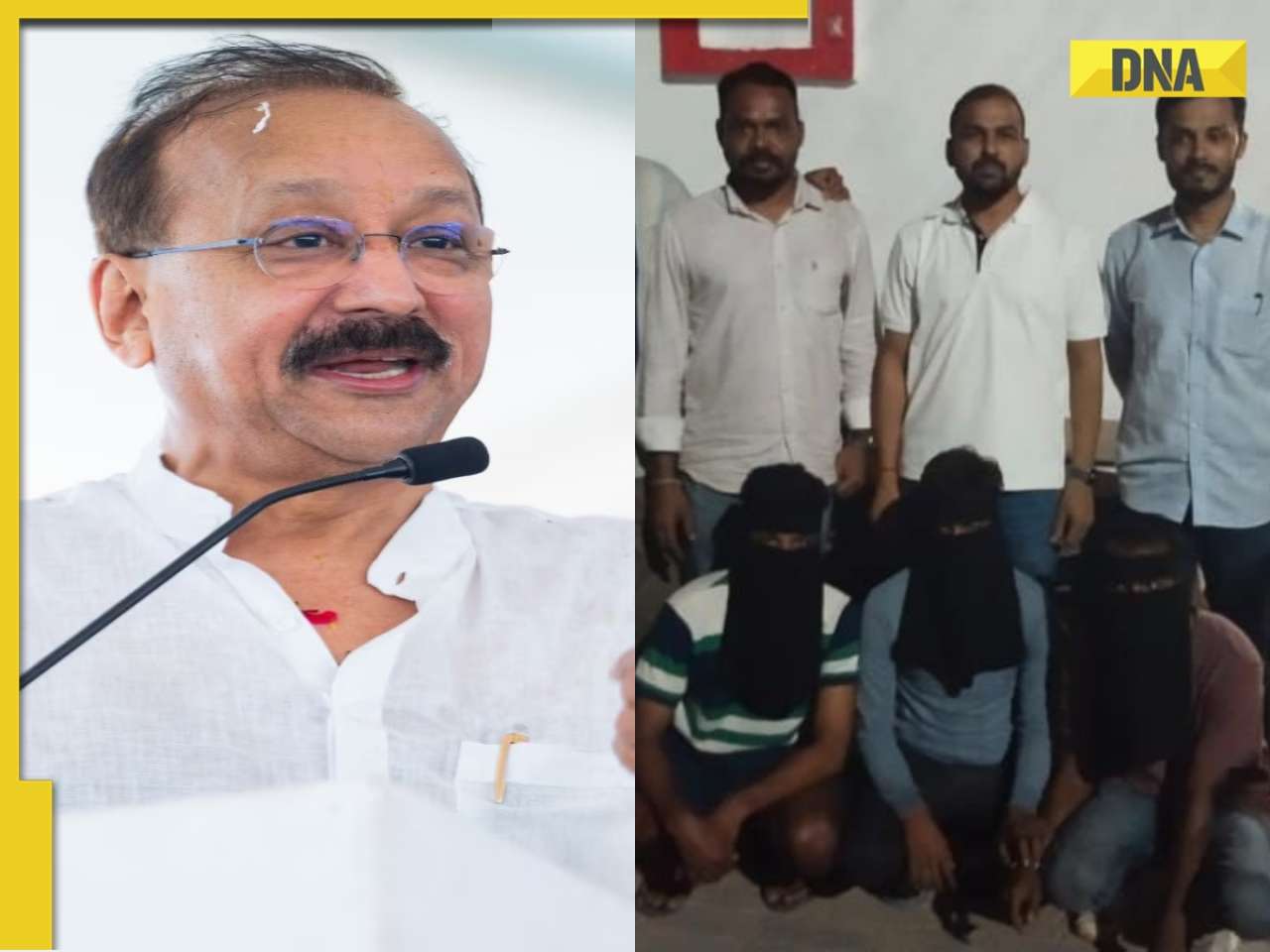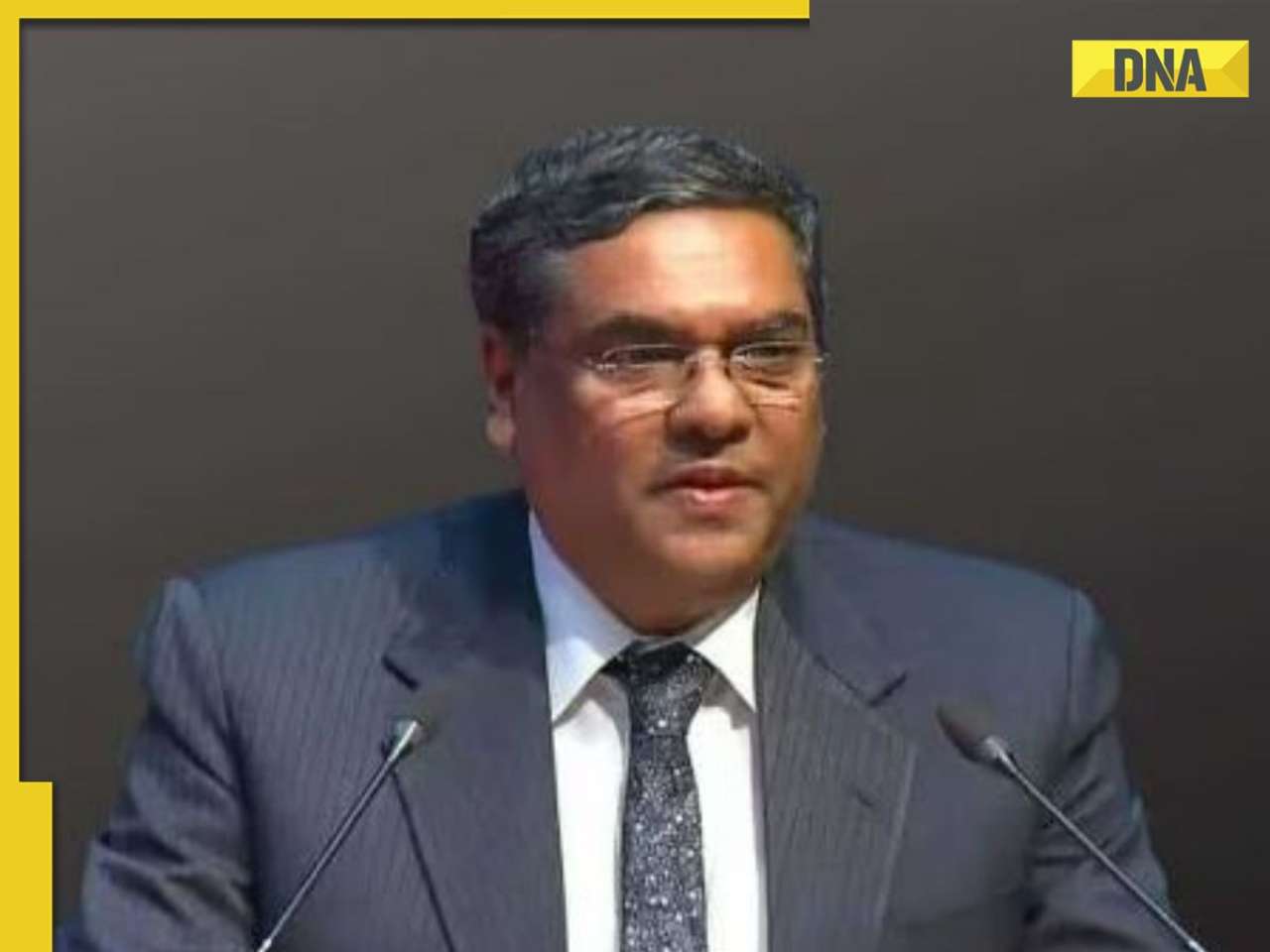- LATEST
- WEBSTORY
- TRENDING
BUSINESS
‘Planning a career move for one last time’
After splitting with BPEP, an investment firm he co-founded and was associated with for 12 years, Subbu Subramaniam N is busy chalking out his next big move.
TRENDING NOW
After splitting with Baring Private Equity Partners India (BPEP), an investment firm he co-founded and was associated with for 12 years, Subbu Subramaniam N is busy chalking out his next big move. DNA Money caught up with the private equity veteran for a chat on his specific career plans and the investment scenario at large. Excerpts:
It must have been tough breaking away from a company you co-founded?
Emotionally, yes it was. But the whole idea is to learn from such situations. We profess to promoters of the portfolio companies that they have to make themselves dispensable. What we are telling them is that at some stage, the company grows beyond your competencies. You should have enough professionals, processes, systems and a wide customer base so that even without you around, the company will continue to grow. So when I am preaching that, I think this is a classic test of whether I practise it as well.
Is everything sorted out now?
Yes, it was all done about a month-and-a-half ago. I now have a clean slate to pursue whatever I want. Besides sorting out the financials, I have the flexibility now — there is no constraint on what I do.
Your status on a business networking site reads, ‘Planning a career move for one last time’. Could you elaborate?
I’m evaluating all the options and will be in a position to take a call by January 1, 2010. The options being looked at include taking up a senior position in a fund that’s coming into India or is already in the country as number one or something; bring one of the big brand names looking to enter the Indian market through a joint venture; the third option is to be 100% owned by the team itself, led by me — which is a very private affair at one level. All three options are open.
But there are talks about you raising a $250-500 million fund already…
That’s jumping to a conclusion I’d say. For the record, let me state that I have not decided what I am going to do. I have not decided on who my joint venture partner, if at all, will be. I don’t know the appetite of the joint venture partner for one investment strategy or another. Without an investment strategy, you can’t decide the fund size and vice-versa.
What I’d said earlier to a fund-raising query was that broadly I would have to raise capital as part of my job irrespective of what form (JV, employment, self-employment) I decide to engage in and that I think $250 million is the kind of range I’ll raise if I am not doing infrastructure. And if I develop an investment strategy to include infrastructure, I’ll have to go all the way up to $500 million.
Which of the three options are you more likely to take?
The first and second option require me to do a lot of research to understand the psyche, strategy and DNA of the partner/sponsor, but in the third option, I will have to apply my mind and plan out various steps in building the firm. For a joint venture, I am pitching by putting together a presentation about my experience, competence, team building and ability to bring value etc. For some international investment firms, India is priority, while for others it’s not. There are some who fear the Indian market is overvalued. It is difficult to convince them that we are not investing in an index stock. But you can’t help it as they always relate to the market like that.
Do you connect with how these investors perceive the Indian market?
As global allocators of capital, many international investors evaluate different markets from that perspective. Thus, what they are saying is partly true. I say this because when I sit with a promoter, he tends to quote the markets as an indication of valuation expectations. For instance, if we are evaluating an investment in an IT/BPO company, very often the promoter will quote bellwether stocks in IT and their valuation to have the benefit of higher price-earning multiple that the sector quotes.
Promoters the world over tend to use the benefit of valuations in the market. My take is that index is not a true reflection of all the opportunities in Indian private equity arena. Index is just a surrogate, which indicates that pricing can be high and promoters will tend to price off that curve. So, there is a psychological connection between private equity and stock markets.
Any plan for making angel investments?
I don’t think I can have any distraction in fulfilling my professional commitment to my job, irrespective of whether it is a JV or my own shop. If I do my own fund, one of the things that will give investors confidence is that I put a significant part of my net wealth as my commitment to the fund. They will be more comfortable then as I will be seen as practising what I preach. I may do angel investing or I may find a professional fund manager if I take up a less demanding role. I enjoy working with young companies; give them ideas, challenge them, confront them, tell them their plans are inconsistent with the market opportunities. But, I don’t think I will do it (angel investment) myself because to give my best to ‘a job’, it will be a distraction.
What’s your take on the PE investment scenario over the last decade or so?
The industry has matured quite a bit. The number of professionals, number of transactions, size of transactions, etc has increased gradually and nicely. There have been exits, but that is one thing still lacking for the comfort of the international investor, particularly the quantum and methods of exits. Most of the exits have been through an initial public offering and very few large size mergers and acquisitions and even lesser trade sale deals.
The international investor is worried about the amounts realised from exits that have happened versus the quantum of capital that has been invested in the last three-odd years. And if investors are expecting an exit from those investments, there certainly is a problem. While there is an investment strategy for private equity capital, most of the investments were actually a bet on pre-IPO and the structures going around then was linked to IPOs and exits. Last 12 months, the market was really bad and hence exits were just not possible. Even in today’s context, there are exits but not to the extent that investors feel very comfortable. In the recent past, the lines between private equity investing (five-year investment horizon) and hedge fund (one-year horizon) investing blurred.
Is IPO exit good for the PE industry?
It is, but investors want to see all forms of exit. When we sit down and negotiate the exit clauses with issuers of capital, the least preferred is a buy-back option. The most preferred is a trade sale deal, while IPO and merger and acquisitions fall somewhere in between. The reason investors choose trade sale over everything else is because the company (in the same line of business) will generally tend to pay a higher price for the business as compared with a financial investor. However, one good thing I have seen in the last 12-odd years is that regulations have become much more structured as compared with what they used to be before. In 1997, when ING set up private equity business, they chose to be in Delhi because a clarification was required from ministry of finance (FIPB) on the permissibility of foreign investment in the sector. All that has changed now as policies have been laid out very clearly and the regulation has been very supportive and clear.
We have 100% FDI permitted in some industries on an automatic basis; we have 10% limits on FDI in banking, 26% for insurance, 51% for some other sectors, 74% in others and finally, until recently, no investment was permitted in certain formats of retail stores.
Having said that, a few issues have arisen with respect to the taxability of divestment proceeds like the pass-through benefits for funds, which is currently being taken up by the Venture capital Association of India, which I currently chair. While everything else looks pretty good for the PE industry, the concern on exit remains.
What is your outlook on the M&A scene in India? Which sectors can expect to see good activity?
We can’t predict anything in that space at all. What is happening or triggering M&As varies from time to time. Somebody starts a business because they got a licence and later figured it is not their core competence, while someone built a business around a particular activity a few others stepped into to cash in on the opportunity and later sold it realising it wasn’t their cup of tea. Thus, M&A will be driven by different things wherein consolidation and shedding of one’s non-core businesses is just one of the criteria.
Secondly, there is international interest coming into some sectors, like for instance the auto components industry, as we speak today. If auto fortunes revive globally, some of them would want to come back and source components, take strategic stakes etc. With respect to sectors, it doesn’t matter much as long as it gives an exit to a private equity investor — something people like me would be concerned about. An essential for M&A activity to flourish in India will be the orientation of Indian promoters to be wiling to sell their stakes.
What kind of returns do PE firms expect when making an exit?
Private equity investors usually have two benchmarks —- one is the IRR (internal rate of return) that the investment generates and the other is the ‘times money’ where the investments compound for a longer time even though at a lesser rate of return (say 2, 3 or 4 times the original investments). A portfolio manager balances these two parameters. For the most part, I’d say it is the ability to deliver higher risk-adjusted returns that is sought as a service from the investment advisors. Thus, investments in infrastructure can be expected to yield 18-20% IRR, whereas the expectations can be over 25% for investments perceived to have higher risks.
Do you think funds operating in India would have managed to reach this threshold?
I don’t think so. There are about a handful of them that have managed and just a select few who have exceeded it. The weak players with a 12-month horizon for their capital have shut shop and are gone already. I’d say those who are still around and doing their third fund would have achieved or are expected to achieve and exceed the threshold; else they wouldn’t be able to raise their third fund.
What’s your take on the fund-raising scene?
There is a lot of challenge in fund-raising today, especially because the biggest source market of capital (US) is absorbing it now. There is almost no capital available from the US for India. While some like the growth potential that India provides, they do not necessarily feel comfortable with the prevailing market valuation. The fact is, they don’t have the money to invest, which is the key reason they are not investing.
As far as fund-raising goes, most international players have already placed their bet on India. All the thought leaders (like foundations, pension funds, etc) with the appetite and inclination have placed their ‘bets’ and are waiting to see demonstrated quality exits. My understanding and assessment of the Indian market is that people want to see more exits before new capital can make its way into the country. There is some capital in the Middle East and adequate capital in India. If somebody is raising a fund in the next 12 months, I think it will make tremendous sense to start raising capital in India, which gives the ability to access and execute transactions, and based on the built-up portfolio, look at sourcing money from the international markets.
What in your opinion are things that PE funds did right or otherwise?
I think PE funds went gung-ho and paid for future ‘growth’ in terms of share price. In many a case, the growth has not come through. Because of the auction situation that prevailed in 2007, some of them have gone overboard and have compromised on the conditions as well, as in investing without a board seat etc.
What changes do you see in the investment ideologies now?
Classic private equity is supposed to be based on solid cash-flow-backed investing, which has not changed. It is the adaptations and innovations people have tried in between that have changed.
What about the LP-GP relationship?
A Limited Partner (LP) - General Partner (GP) relationship is generally inked in an agreement, which is the formal side of it. The unwritten portion is the equation that each of them build with their fund managers. This involves visiting portfolio companies, knowing the CEO, etc. During difficult times, the LP wants to have adequate information to be able to predict the possible lower returns. At least, LP would like to know the challenges that the investment advisor is facing, whether the investment will blow up ahead of the event. It gives them (LP) a lot more comfort to know ahead than suddenly knowing that they have lost money on a particular investment. Thus, the information and interaction time requirement have gone up significantly. They (LPs) are of the opinion that once the information is there, they will be in a position to construct/ understand what returns they can get or whether there is a possibility of any return at all. Thus, information disclosure, interaction and related transparency norms have become more stringent.








)
)
)
)
)
)
)
)
)
)
)
)
)
)
)






